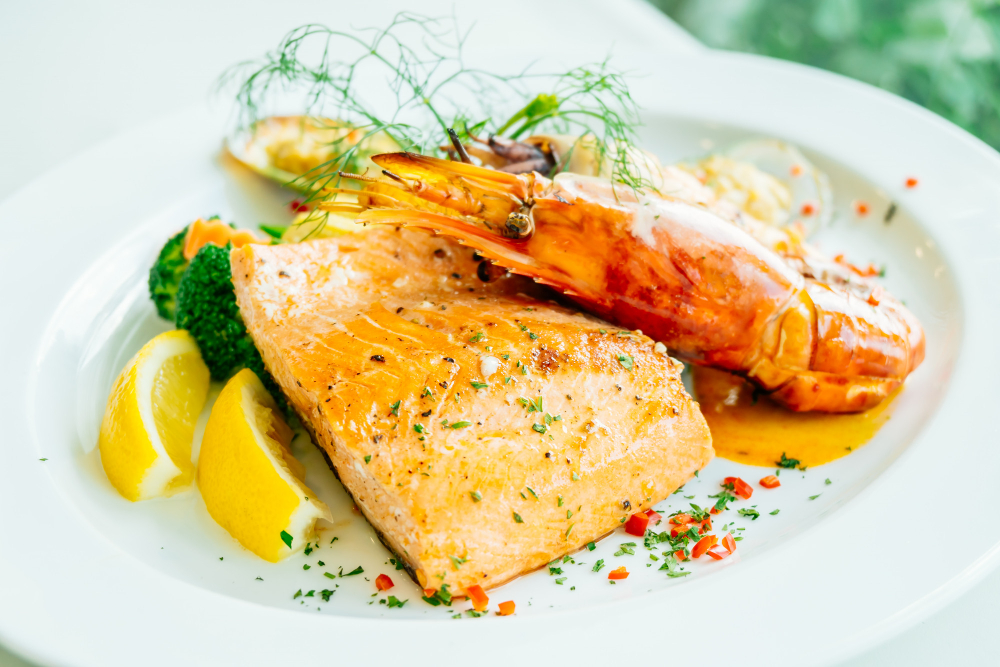Introduction to Whole Food Nutrition and Antioxidants
Whole food nutrition is all about consuming foods in their most natural state. This means opting for fruits, vegetables, whole grains, nuts, and seeds that are minimally processed. One of the key components of whole food nutrition is antioxidants, which play a crucial role in maintaining our health.
What are Antioxidants?
Antioxidants are compounds that help protect our cells from damage caused by free radicals. Free radicals are unstable molecules that can cause oxidative stress, leading to chronic diseases and aging.
The Importance of Whole Food Nutrition
Whole food nutrition emphasizes the consumption of nutrient-dense foods. These foods provide a rich array of vitamins, minerals, and antioxidants that are essential for optimal health.
The Science Behind Antioxidants
To truly appreciate the role of antioxidants, it’s important to understand the science behind them.
How Antioxidants Work
Antioxidants neutralize free radicals by donating an electron, thus preventing these unstable molecules from damaging our cells. This process helps reduce oxidative stress and inflammation in the body.
Types of Antioxidants
There are several types of antioxidants, including vitamins C and E, selenium, and flavonoids. Each type plays a unique role in protecting our health.
Key Point 1: Antioxidants are essential in protecting our cells from oxidative stress and chronic diseases.
Antioxidants in Fruits and Vegetables
Fruits and vegetables are some of the best sources of antioxidants. Let’s explore why they are so important.
Colorful Choices
The vibrant colors of fruits and vegetables are often indicative of their antioxidant content. For example, blueberries, tomatoes, and spinach are packed with antioxidants like anthocyanins, lycopene, and beta-carotene.
Daily Recommendations
Incorporating a variety of colorful fruits and vegetables into your daily diet ensures you get a broad spectrum of antioxidants. Aim for at least five servings per day.
Whole Grains and Antioxidants
Whole grains are another important part of whole food nutrition, offering a rich source of antioxidants.
Benefits of Whole Grains
Whole grains, such as oats, brown rice, and quinoa, are packed with fiber, vitamins, and minerals. They also contain antioxidants like vitamin E and selenium, which help protect our cells.
Incorporating Whole Grains
Switching from refined grains to whole grains can significantly boost your antioxidant intake. Try incorporating whole grains into your meals by choosing whole grain bread, pasta, and cereals.
Nuts, Seeds, and Antioxidants
Nuts and seeds are small but mighty when it comes to their antioxidant content.
Nutrient Powerhouses
Nuts and seeds, such as almonds, walnuts, and flaxseeds, are loaded with antioxidants like vitamin E and polyphenols. These nutrients help fight inflammation and support heart health.
Easy Snacks
Incorporating nuts and seeds into your diet can be as simple as adding them to salads, yogurts, or enjoying them as a snack.
Key Point 2: Incorporating a variety of colorful fruits, vegetables, whole grains, nuts, and seeds into your diet boosts your antioxidant intake.
The Role of Antioxidants in Disease Prevention
Antioxidants play a crucial role in preventing various diseases.
Heart Health
Antioxidants help reduce inflammation and oxidative stress, which are key contributors to heart disease. Foods rich in antioxidants, such as berries and nuts, can help protect your heart.
Cancer Prevention
Some studies suggest that a diet high in antioxidants may help reduce the risk of certain cancers by protecting cells from damage.
Antioxidants and Aging
Antioxidants are also known for their anti-aging properties.
Skin Health
Antioxidants like vitamins C and E help protect the skin from damage caused by UV rays and pollution. They also promote collagen production, which keeps the skin looking youthful.
Cognitive Function
Antioxidants may help protect the brain from oxidative stress, which can contribute to cognitive decline and neurodegenerative diseases like Alzheimer’s.
Antioxidants in Herbs and Spices
Herbs and spices are often overlooked sources of antioxidants.
Turmeric
Turmeric contains curcumin, a powerful antioxidant with anti-inflammatory properties. It’s great for adding flavor and health benefits to your dishes.
Cinnamon
Cinnamon is rich in polyphenols, which have strong antioxidant effects. Adding a sprinkle of cinnamon to your meals can boost your antioxidant intake.
Key Point 3: Antioxidants play a vital role in disease prevention, anti-aging, and cognitive health.
Antioxidants and Immune Support
A strong immune system is essential for overall health, and antioxidants can help.
Vitamin C
Vitamin C is a well-known antioxidant that supports the immune system by enhancing the production of white blood cells.
Zinc
Zinc is another important antioxidant that helps maintain a healthy immune system. It’s found in foods like nuts, seeds, and whole grains.
Antioxidants and Inflammation
Chronic inflammation is linked to many diseases, and antioxidants can help combat it.
Anti-Inflammatory Foods
Foods rich in antioxidants, such as berries, leafy greens, and nuts, have anti-inflammatory properties that help reduce inflammation in the body.
Omega-3 Fatty Acids
Omega-3 fatty acids, found in fatty fish and flaxseeds, are powerful anti-inflammatory agents that work synergistically with antioxidants.
Antioxidants and Detoxification
Antioxidants also play a role in the body’s detoxification processes.
Liver Health
The liver is the body’s main detox organ, and antioxidants like glutathione help support its function.
Detoxifying Foods
Foods like garlic, onions, and cruciferous vegetables contain antioxidants that aid in the detoxification process.
Key Point 4: Antioxidants support immune health, reduce inflammation, and aid in detoxification.
Antioxidants in Animal-Based Foods
While plant-based foods are rich in antioxidants, some animal-based foods also offer these benefits.
Fish
Fatty fish like salmon and mackerel are excellent sources of omega-3 fatty acids, which have antioxidant properties.
Dairy Products
Certain dairy products, such as yogurt and kefir, contain probiotics that support gut health and have antioxidant effects.
Whole Food Nutrition and Antioxidant Synergy
Combining different whole foods can enhance the antioxidant effects.
Food Pairing
Pairing foods rich in different antioxidants can create a synergistic effect, boosting their overall benefits. For example, adding vitamin C-rich foods to iron-rich plant foods can enhance iron absorption.
Balanced Diet
A balanced diet that includes a variety of whole foods ensures you get a wide range of antioxidants and other nutrients essential for health.
Antioxidants and Exercise
Exercise increases oxidative stress, but antioxidants can help mitigate its effects.
Pre-Workout Nutrition
Consuming antioxidant-rich foods before exercise can help protect cells from oxidative damage. Fruits like berries and citrus are great pre-workout snacks.
Recovery
Post-workout recovery can be enhanced by antioxidants, which help reduce muscle soreness and inflammation.
Key Point 5: A balanced diet with diverse whole foods ensures comprehensive antioxidant benefits, supports exercise, and enhances recovery.
Practical Tips for Boosting Antioxidant Intake
Incorporating more antioxidants into your diet can be simple and delicious.
Smoothies
Smoothies are an excellent way to pack a variety of antioxidant-rich foods into one meal. Combine fruits, vegetables, nuts, and seeds for a nutrient-dense drink.
Salads
Salads are another easy way to boost your antioxidant intake. Add a mix of colorful vegetables, fruits, nuts, and seeds to create a vibrant, healthful meal.
Cooking Methods and Antioxidants
How you cook your food can affect its antioxidant content.
Raw vs. Cooked
Some antioxidants are more available in raw foods, while others become more potent when cooked. For example, cooking tomatoes increases the availability of lycopene, an important antioxidant.
Steaming and Boiling
Steaming and boiling are gentle cooking methods that help preserve the antioxidant content of vegetables.
Antioxidant Supplements
While it’s best to get antioxidants from whole foods, supplements can be beneficial in certain situations.
When to Consider Supplements
If you have dietary restrictions or specific health conditions, antioxidant supplements can help fill nutritional gaps. Always consult with a healthcare professional before starting any supplement regimen.
Choosing Quality Supplements
Look for high-quality supplements from reputable brands. Ensure they are free from unnecessary additives and have been tested for purity and potency.
Conclusion
Antioxidants are a vital component of whole food nutrition, offering numerous health benefits. By incorporating a variety of antioxidant-rich foods into your diet, you can support your overall health, prevent chronic diseases, and promote longevity. Embrace the power of whole foods and enjoy the vibrant health they bring.
FAQ’s:
What are antioxidants?
Antioxidants are compounds that protect our cells from damage caused by free radicals.
Why are antioxidants important in whole food nutrition?
Antioxidants help reduce oxidative stress and inflammation, which are linked to chronic diseases.
Which foods are high in antioxidants?
Fruits, vegetables, whole grains, nuts, and seeds are all excellent sources of antioxidants.
Can I get enough antioxidants from my diet alone?
Yes, a varied diet rich in whole foods can provide sufficient antioxidants.
Do cooking methods affect antioxidant levels?
Yes, some antioxidants are more available in raw foods, while others become more potent when cooked.
Should I take antioxidant supplements?
It’s best to get antioxidants from whole foods, but supplements can be helpful in certain situations. Consult with a healthcare professional.
How do antioxidants support immune health?
Antioxidants like vitamin C and zinc enhance the production and function of immune cells.
Can antioxidants help with inflammation?
Yes, foods rich in antioxidants have anti-inflammatory properties that help reduce inflammation in the body.
Are there animal-based sources of antioxidants?
Yes, fatty fish and certain dairy products contain antioxidants.
How can I incorporate more antioxidants into my diet?
Include a variety of colorful fruits and vegetables, whole grains, nuts, and seeds in your meals. Smoothies and salads are easy ways to boost your intake.



